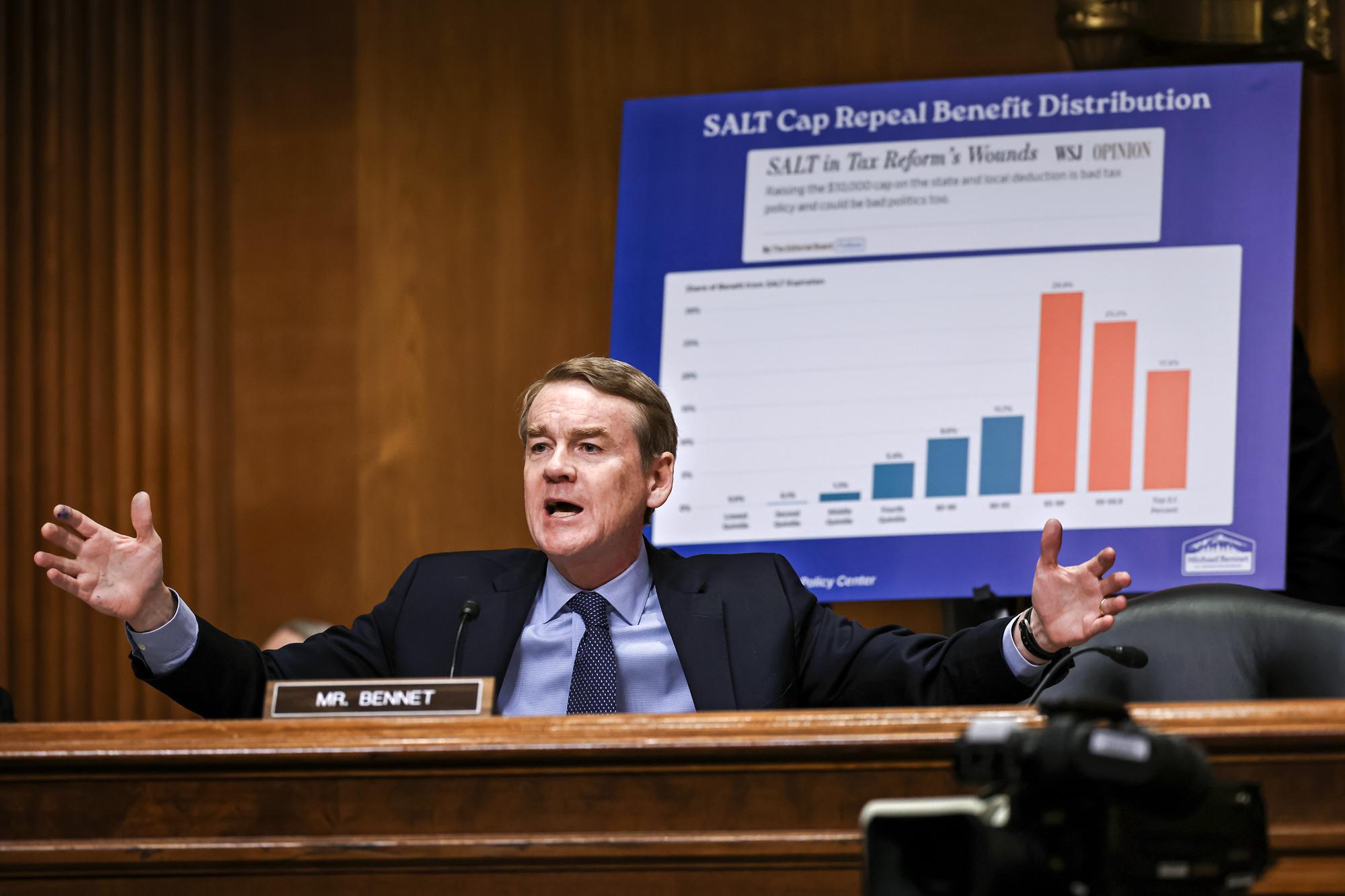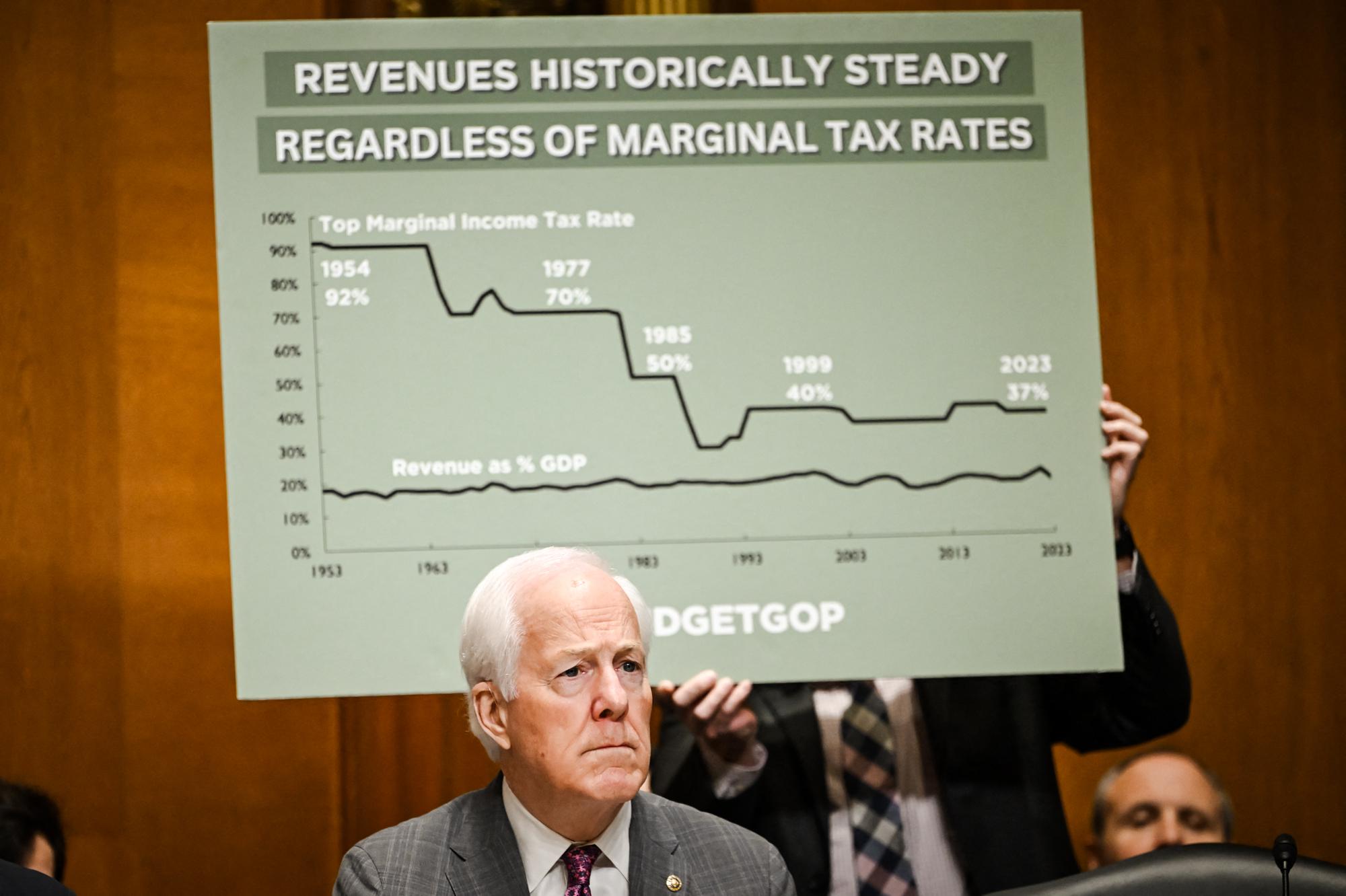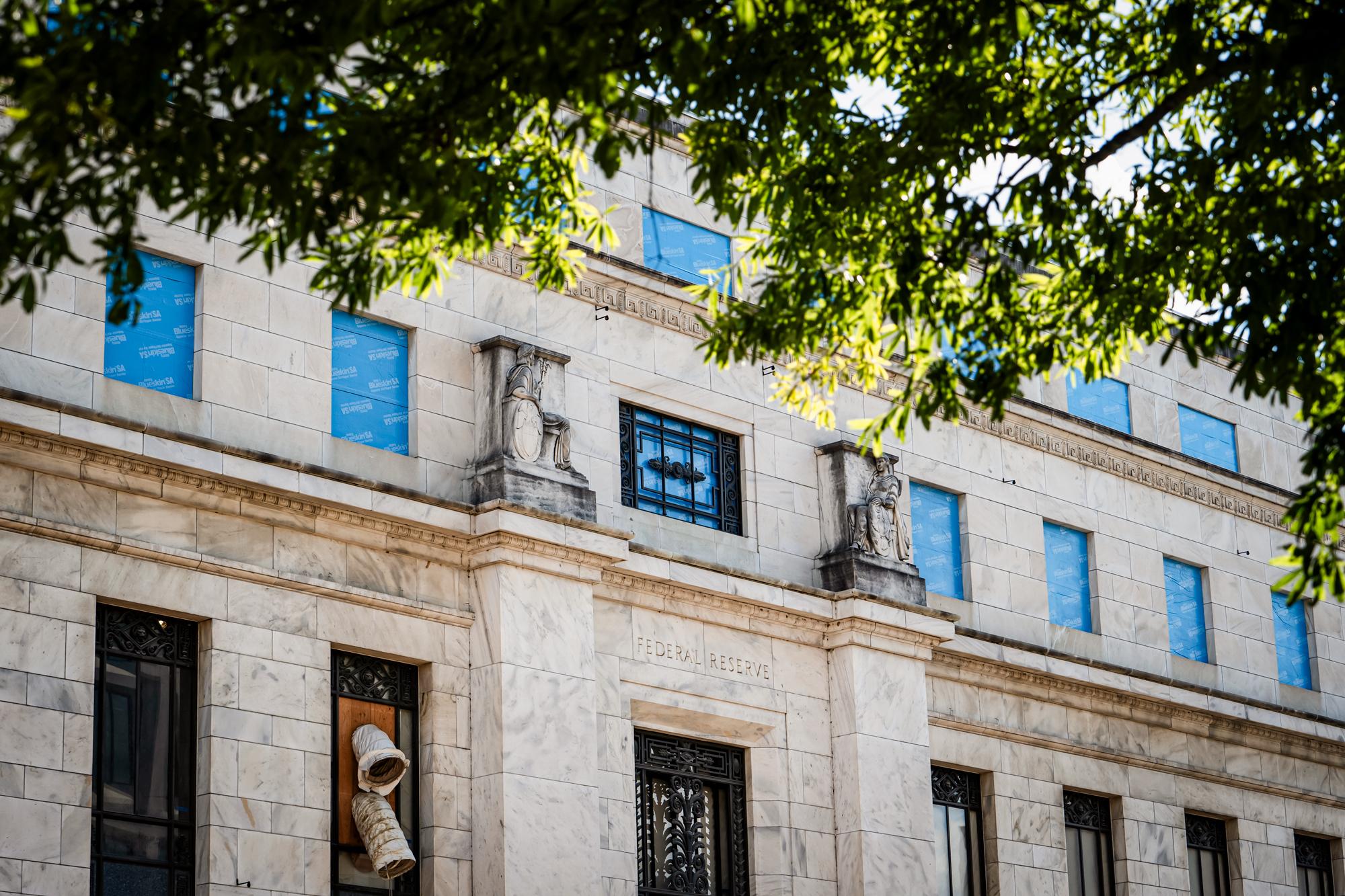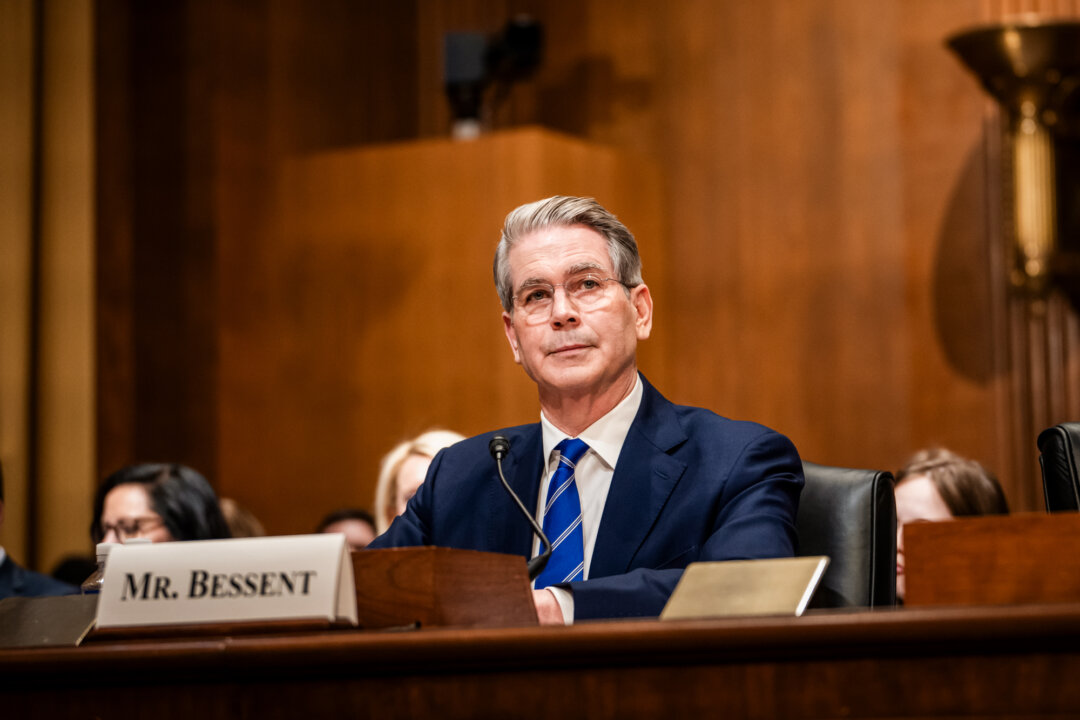Nominee for secretary of the U.S. Department of the Treasury Scott Bessent has vowed that when President-elect Donald Trump returns to the White House, he will unleash “a new economic golden age.”
Bessent, a billionaire hedge fund manager, appeared before the Senate Finance Committee for his confirmation hearing in Washington on Jan. 16. Democrats asked questions about tax policy, tariffs, and other pressing economic issues.
“As President Trump has said, we will unleash the American economy by implementing pro-growth regulatory policies, reducing taxes, and unleashing American energy production,” Bessent told lawmakers.
Here are five key takeaways from the hearing:
1. Trump Tax Cuts
The 2017 Tax Cuts and Jobs Act (TCJA) was a key subject for senators at the Jan. 16 hearing. Over the coming weeks, Congress will debate whether to extend the Trump-era tax cuts or let them expire.
The incoming administration’s chief economic priority would be keeping the TCJA intact. Not doing so would cause “an economic calamity,” Bessent said.
“If we do not fix these tax cuts, if we do not renew and extend, then we will be facing an economic calamity, and as always, with financial instability that falls on the middle- and working-class people.
“We will see a gigantic middle-class tax increase,“ he said. ”We will see the child tax credit halved. We will see the deductions halved … it has the potential for a sudden stop.”
The senators presented differing views on the TCJA’s effects.
Democrats noted that the tax policy was heavily skewed toward the wealthy.
“That has burdened the American people with another $2 trillion of debt that their kids and grandkids are going to have to pay back,” Sen. Michael Bennet (D-Colo.) said. “Despite the conversation we’ve heard over here, clearly, you know the distribution shows it was deeply, deeply, deeply unfair.”
Bessent disagreed with this categorization, stating that the share of taxes paid by the wealthy increased after the TCJA’s implementation. Additionally, working families registered real (inflation-adjusted) wage gains in 2018 and 2019.

According to Bureau of Labor Statistics data, real hourly compensation rose about 5 percent during these two years.
Bessent also refuted the argument that the tax cuts fueled the ballooning budget deficit.
“We do not have a revenue problem in the United States of America; we have a spending problem,” Bessent said.
Bessent referenced that federal tax revenues were higher than the Congressional Budget Office’s TCJA estimates. For four years following the TCJA’s implementation, revenues averaged $205 billion above the nonpartisan budget watchdog’s projections.
2. Tariffs in Focus
The Key Square Group investment fund founder repeatedly defended Trump’s tariff plans.
Bessent shrugged it off when Sen. Ron Wyden (D-Ore.) said that tariffs are a consumption tax hike that will hurt workers and small businesses. According to Bessent, tariffs can strengthen the U.S. dollar, support adjustments to consumer preferences, and force foreign manufacturers to cut prices.
“I would respectfully disagree,” Bessent said. “The history of tariffs and tariff theory—optimal tariff theory—does not support what you’re saying.”
The billionaire financier stated that the president-elect’s tariffs fit into three broad categories. Initially, trade levies would address unfair trade practices. Next, tariffs would function as a source of revenue. Lastly, they can act as a tool for negotiation.
Regarding trade, Bessent emphasized the need to strengthen U.S. supply chains and ensure that the United States maintains its dollar hegemony.

“We must secure supply chains that are vulnerable to strategic competitors, and we must carefully deploy sanctions as part of a whole-of-government approach to address our national security requirements,“ Bessent said in his prepared testimony. ”And critically, we must ensure that the U.S. dollar remains the world’s reserve currency.”
Trump has proposed universal tariffs of 10 percent to 20 percent and additional levies of 60 percent to 100 percent on all Chinese goods entering the United States. He recently threatened 25 percent tariffs on Canada and Mexico and vowed additional tariffs on countries partaking in anti-dollar efforts.
3. China Faces a Recession
China is in a recession, and the world’s second-largest economy “is the most unbalanced economy in the history of the world,” Bessent said.
He pointed out that the Chinese regime has not engaged in fair trade despite opening up its markets to the world.
“Clearly, what has happened is the trade has not been fair—that has fallen on the American workers,” Bessent said.
“We cannot allow a player like this to flood our markets or to flood the world.”
Talking to Sen. John Cornyn (R-Texas), Bessent stated that Beijing concentrates on military spending more than anything else.
“They are using their surpluses to fund their military machine in China,” Bessent said.
On the Trump-era trade agreement with Beijing, Bessent noted that the current administration failed to ensure that the Chinese regime complied with its provisions, particularly regarding U.S. agriculture purchases.
“China has not made good on their agriculture purchases,” he said, adding that he would explore a “makeup provision” over four years to ensure that the country follows through on the trade pact established before the COVID-19 pandemic.

4. Federal Reserve Independence
The Federal Reserve’s independence status will remain intact under Trump.
Bessent told lawmakers that he supports keeping the interest rate-setting Federal Open Market Committee (FOMC) free to make monetary policy decisions. At the same time, he said he believes that Trump should be allowed to voice his opinion on what the central bank should do.
“President Trump is going to make his views known, as many senators did, three senators, including two on this committee,” he said.
“I think, on monetary policy decisions, the FOMC should be independent.”
One of the senators he referenced was Sen. Elizabeth Warren (D-Mass.). For months, she had encouraged the Fed to cut rates.
Days before the Fed launched its easing cycle in September 2024, she urged Chairman Jerome Powell and his colleagues to slash interest rates by 75 basis points.
“Given the Fed’s confidence in inflation moving towards its target of 2 percent and data indicating slower job growth, now is the time to swiftly move forward with rate cuts,” Warren said in a co-authored Sept. 16 letter.
“It is clearly the time for the Fed to cut rates.”
Meanwhile, in August 2024, Trump told reporters at his Mar-a-Lago residence in Florida that he should have a say in monetary policy decisions. He later clarified that he supports Federal Reserve independence but still thinks presidents should provide their opinions.
“I don’t think I should be allowed to order it, but I think I have the right to put in comments as to whether or not interest rates should go up or down,” Trump said at the Economic Club of Chicago in October 2024.

5. Debt Limit
The prospective Treasury secretary is open to eliminating the debt ceiling.
The debt limit—the maximum amount lawmakers can borrow to meet existing obligations such as Social Security, Medicare, and interest payments—is again in the spotlight as Congress works to avoid defaulting on its debt.
“Once President Trump takes office, and if I’m confirmed, if he wants to eliminate the debt limit, I will work with him and you on that,” Bessent said in an exchange with Warren.
Warren confirmed at the hearing that she agreed with the president-elect on abolishing the debt ceiling.
Last month, when Congress was engaged in a brief fiscal battle to avert a federal government shutdown, Trump urged lawmakers to either extend the debt ceiling until 2029 or remove it altogether.
“The Democrats have said they want to get rid of it. If they want to get rid of it, I would lead the charge,” he said in a Dec. 19 phone interview with NBC News.
The U.S. government will have until June or July to reach an agreement to avoid a default. At this point, also known as the X-date, economists believe the Treasury will have exhausted its “extraordinary measures,” which involve tapping into its general account at the Federal Reserve and suspending certain government investments.
Still, Bessent said he believes that getting “our fiscal house in order” is paramount.

